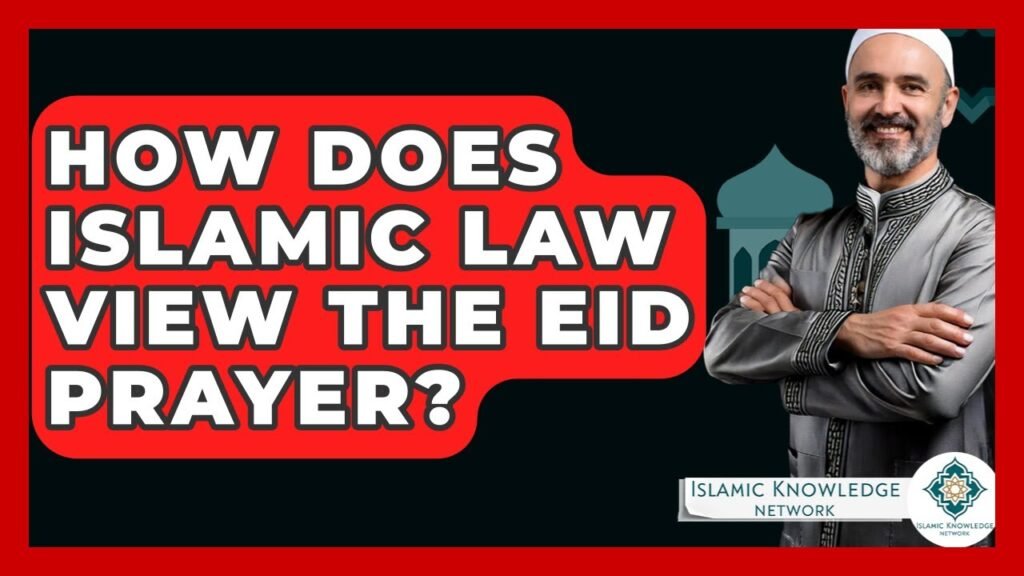You are here to read: What Is the Islamic Law Perspective on Eid Prayer? – A Thoughtfully Written Guide Offering Spiritual Wisdom and Travel Advice for Every Pilgrim who is going on holy journey of Hajj or Umrah.
Eid prayers hold a special significance in the Islamic faith, marking the end of Ramadan and symbolizing spiritual renewal and community unity. Understanding the Islamic law surrounding the Eid prayer not only deepens one’s appreciation of this sacred ritual but also highlights its pivotal role in Muslim life. In this article, “How Does Islamic Law View The Eid Prayer?”, we delve into the intricacies of the prayer’s significance, its prescribed guidelines, and how it reflects broader Islamic principles.
As a trusted resource for Muslims across the globe, the Islamic Knowledge Network provides comprehensive insights into various aspects of Islamic practice. Our commitment extends beyond just Eid, as we continuously update our blog with crucial information about Hajj and Umrah, ensuring our readers receive timely guidance for their pilgrimage journeys. Whether you are preparing for Eid or planning your next trip to perform Hajj or Umrah, our blog serves as a valuable resource to enhance your spiritual experience. Join us as we explore the foundations of the Eid prayer and its importance in Islamic tradition, enriching both your faith and understanding of this important occasion.
What Is the Islamic Law Perspective on Eid Prayer?
Eid prayers are a significant aspect of Islamic observance, providing a unique opportunity for communal worship and reflection. According to Islamic law, Eid prayers, known as Salah al-Eid, are highly recommended (Sunnah Mu’akkadah) and should be performed in congregation. This practice not only enhances community bonds but also allows Muslims to express gratitude for the blessings they have received during the previous month of fasting, particularly during Ramadan.
The two main Eids—Eid al-Fitr and Eid al-Adha—each have their own distinct prayers, typically performed in the morning at designated locations. Islamic jurisprudence emphasizes the importance of these prayers, as they serve to foster unity among Muslims and remind them of their faith’s core values. The Eid prayer comprises two units (rak’ahs) and is often accompanied by a sermon (khutbah), wherein the Imam addresses the congregation to highlight themes of forgiveness, charity, and gratitude.
For those preparing for their spiritual journeys, Airlink Hajj and Umrah provides comprehensive updates on Hajj and Umrah, ensuring that pilgrims are informed about the latest developments. Stay tuned to our blog for all features related to religious observances, including the significance of Eid prayers, enhancing your understanding of Islamic practices.
FAQ on “What Is the Islamic Law Perspective on Eid Prayer?”
FAQs on the Islamic Law Perspective on Eid Prayer
-
What is the significance of Eid prayer in Islam?
Eid prayer is a communal prayer that marks the beginning of Eid al-Fitr or Eid al-Adha, emphasizing gratitude, unity, and community among Muslims.You're at the middle of this awesome post at AirlinkHajjandUmrah.com through: What Is the Islamic Law Perspective on Eid Prayer?. Keep reading, it gets better!
-
Is it mandatory to perform the Eid prayer?
Eid prayer is considered highly recommended (Sunnah Mu’akkadah) in Islamic law, and while it is not obligatory, attending it is encouraged for all able Muslims. -
What is the preferred time for performing Eid prayer?
Eid prayer is traditionally performed after the sun has fully risen, typically around 15-20 minutes after dawn, and can be conducted until just before the time for the Dhuhr prayer.
-
What is the proper way to perform the Eid prayer?
The Eid prayer consists of two units (rak’ahs), with specific additional takbirs (phrases proclaiming God’s greatness) before and after the prayer, followed by a sermon (khutbah). - Can women and children participate in the Eid prayer?
Yes, women and children are encouraged to participate in Eid prayer, as it promotes community spirit and unity among all members of the Muslim community.
That wraps up What Is the Islamic Law Perspective on Eid Prayer?. Thanks for sticking with us till here! Share this: What Is the Islamic Law Perspective on Eid Prayer? with your friends.
Check our homepage at Air Link Hajj & Umrah for more awesome updates.
Some interesting posts are: 1: Umrah Mubarak, 2: When is Umrah closed 2026?, 3: When does Umrah start after Hajj 2026?
Mushu, an experienced Saudi Arabia traveler and writer, shares insightful tips and spiritual reflections to enhance Hajj and Umrah journeys for fellow pilgrims. He has been to Makkah and Madina from 2016 to 2023 many times and his posts will reflect this.







